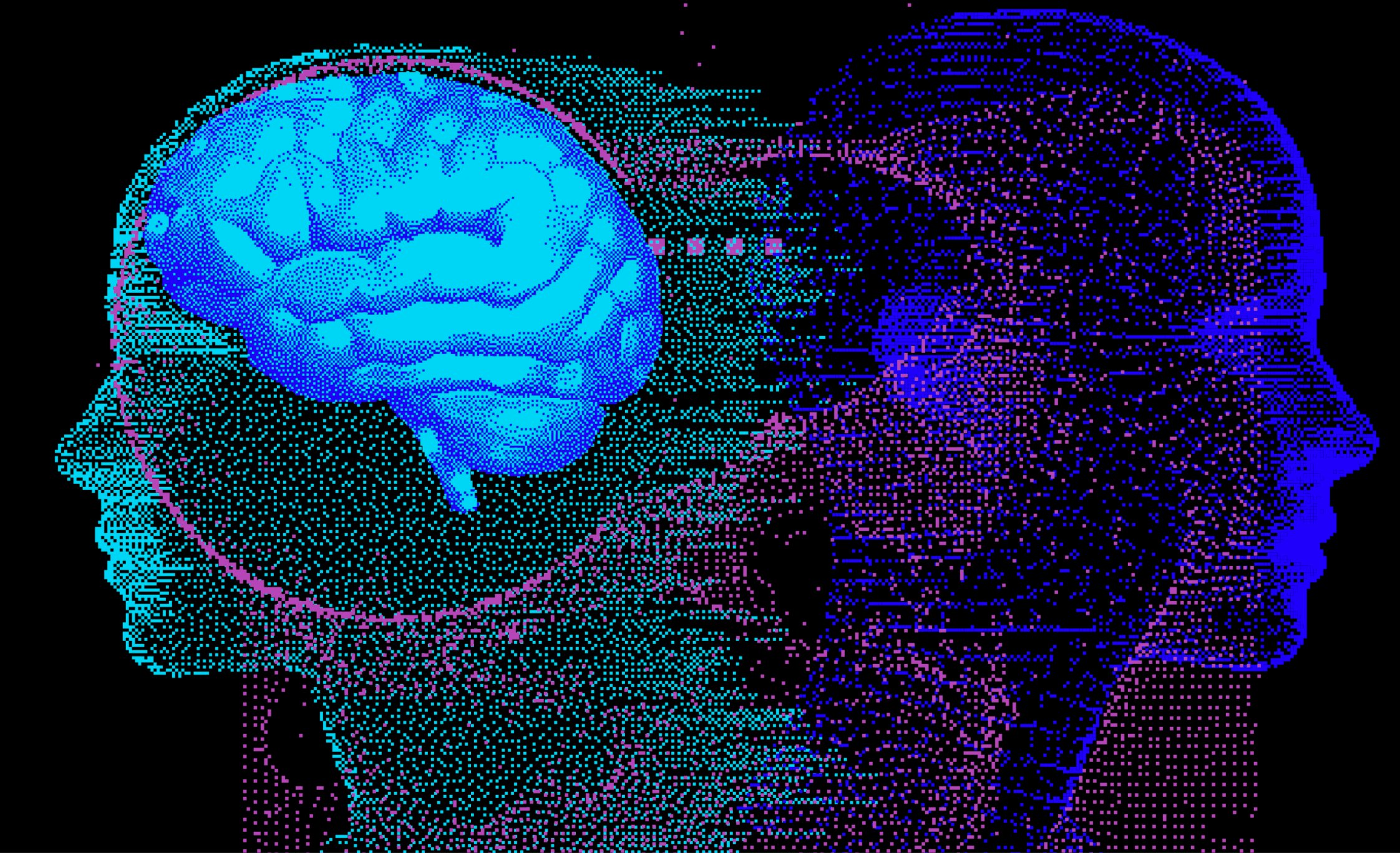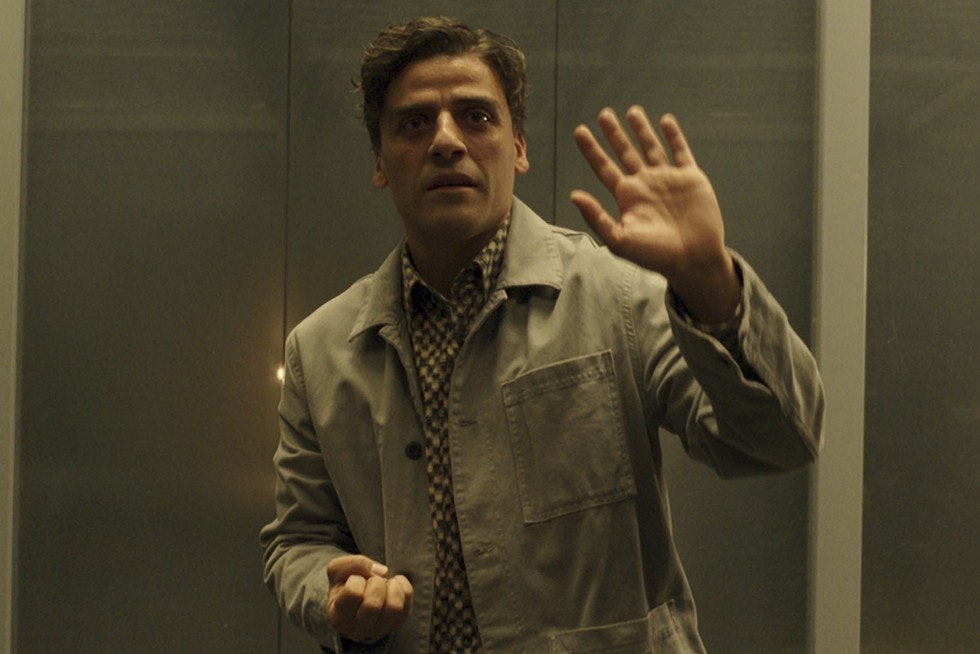
The human brain is constantly bombarded with information 24/7.
As you’re reading this article, your dog might be yawning, a delivery truck is passing by underneath your window, and just about a bajillion other things are occurring all around you. Your brain unconsciously filters out much of this information in a process known as “disassociation.”
“It is impossible to be consciously aware of all of that information simultaneously,” psychiatrist David M. Reiss tells Inverse
Most people disassociate to some extent every day, but for Steven Grant — the museum attendant-turned protagonist of Marvel’s new limited series Moon Knight — disassociation is anything but normal. Grant’s memory lapses, lack of control, and, of course, his alter ego — mercenary-turned-superhero Marc Spector — appear to be some of the classic hallmarks of an extremely rare mental health disorder known as Disassociative Identity Disorder (DID).
But what, exactly, is DID, and is the show’s depiction of it realistic — or harmful toward people with mental health concerns? Inverse speaks with two psychiatrists to dive deep into the science behind Moon Knight. Let’s get into it.
Reel Science is an Inverse series that reveals the real (and fake) science behind your favorite movies and TV.
What is Disassociative Identity Disorder (DID)?
“Dissociative identity disorder is a mental disorder that is defined through an altered state of consciousness,” Anthony Tobia, a professor of psychiatry at Rutgers’ Robert Wood Johnson University Hospital, tells Inverse.
These altered states of consciousness are known as “alters” and are fractured parts of your consciousness that break off into another personality. If you have DID, you are likely not consciously aware of your alter. (Disassociative Identity Disorder was previously referred to as Multiple Personality Disorder.)
“When there are two or more such alters that function essentially independent of conscious intention and largely independent of conscious awareness that is the definition of Dissociative Identity Disorder,” Reiss says. “In the most extreme situations, the different aspects of the self — alters — may essentially act independently, exhibiting very different behavioral and emotional responses and personality traits.”

Tobia adds that DID can usually be traced back to a clear origin.
“Usually the alter exists because it fills a very specific and sensitive need, and that usually arises from severe trauma,” he says.
One example of such trauma might be child sexual abuse, wherein the brain “literally cannot comprehend what's happening to them, so they can get into this altered state of consciousness that allows the processing” of the trauma, according to Tobia. Normally, once the trauma is over, you would revert to your normal state of consciousness, but if the trauma is recurrent, you could potentially develop DID.
It’s worth noting that DID is an extremely rare disorder. Only 1.5 percent of the global population has been diagnosed with DID. Most people who disassociate do not actually have DID, since we can unconsciously filter out information without losing our fundamental sense of self. Even individuals who “overly” disassociate are not always diagnosed with DID since they are consciously aware of when they feel different and still have a coherent sense of self, according to Reiss.
“Personally, in over 35 years of evaluating over 15,000 persons, I work with dissociative phenomena all the time — essentially, daily – but I have seen perhaps a handful of cases of true DID,” Reiss says.
Which brings us to our next question...
Does Steven Grant have DID?

Based on what we’ve discussed, it might seem easy to conclude that Steven Grant — a meek museum attendant with a violent alter ego — has DID. He has little control over his alter, Spector, who functions, at least initially, as an independent personality, which affects his sense of identity.
“DID is diagnosable only when there is a spontaneous, unintentional, essentially unconscious division of the self into different, independently acting selves,” Reiss says.
But is that enough to officially diagnose Grant with DID? Maybe, but it’s hard to say for sure.
Since DID is so rare, the clinical information on the disorder is often lacking and it can be hard to make a diagnosis, especially since frequent disassociation can also occur as a result of other mental health concerns.
“The overuse of filtering, or clinically, hypertrophied dissociation is a common and disruptive effect of both acute and chronic Post-Traumatic Stress Disorder,” Reiss says.

Disassociation also occurs in disassociative amnesia — a condition when people block out or cannot recall informant details about their life, which could also plausibly explain some of Grant’s symptoms — but not the existence of his “alter” Marc Spector.
“Everyone with DID has disassociative amnesia,” Tobia says. “Not everyone with dissociative amnesia has DID.”
Before Tobia could make a diagnosis of DID for Grant, he says he’d have to rule out other possible explanations – likely in conjunction with a physician — like abuse of substances like LSD or a brain tumor, which might also explain some of Grant’s hallucinations.
Once he’s ruled out those other underlying medical conditions, Tobia makes a provisional diagnosis of Steven Grant: “I think my initial impression is DID.”
Is Moon Knight’s portrayal of DID realistic?

According to Reiss, media depictions of DID in shows like Moon Knight make the disorder seem much more common than it actually is in real life.
“It is seen much, much, much more frequently in the media, on social media, on TV and in films, and in common discussion than it occurs IRL,” Reiss says.
Reiss isn’t generally fond of these media depictions, which he characterizes as “exaggerated,” “overly dramatic,” and often portray “dysfunctional, dangerous and/or sociopathic/psychopathic” characters — a pretty fitting description of the violent Spector, who often murders people as Grant’s alter.
Tobia agrees, stating that the depiction of DID in Moon Knight is overall a “mixed bag.” For example, it’s highly unlikely that Grant would be able to communicate with his alter consciously as he does in the show.
“That's overly dramatized and very unlikely,” Tobia says. “The individual is much more likely to just simply perceive it as a voice and may even present their psychiatrist with auditory hallucinations.”
But the TV show does get some things right about the uncommon disorder, and it could be worthwhile for medical students in psychiatric residency programs to view shows like Moon Knight for educational or discussion purposes.

Some of Grant’s symptoms of DID, such as having a lack of control over his alter— recall the scene where Grant wants to give up the scarab beetle but Spector unconsciously prevents him from doing so — or experiencing significant memory lapses of long periods of time is fairly realistic, albeit exaggerated.
“This individual waking up in the field with no memory of how he got there is very consistent and, in my opinion, medically accurate with individuals with this and related conditions,” Tobia says.
Throughout Moon Knight’s pilot episode, we see Grant struggling to grasp his identity. He discerns that something isn’t quite right with his perception of the world, which relates to a common DID symptom known as “depersonalization.”
Depersonalization is “the subjective sense that aspects of yourself are unreal in some way you don't feel quite like yourself,” Tobia explains.
But if shows like Moon Knight really want to get mental health depictions right, they’d be better off hiring a licensed psychiatrist to consult before production is underway, lest they risk stigmatizing people with mental health issues using harmful tropes such as superhero powers or violent behavior.
“The viewer is left to their own devices to draw conclusions and those conclusions can certainly be inaccurate and then even stigmatizing,” Tobia concludes.
Moon Knight is streaming now on Disney+.







